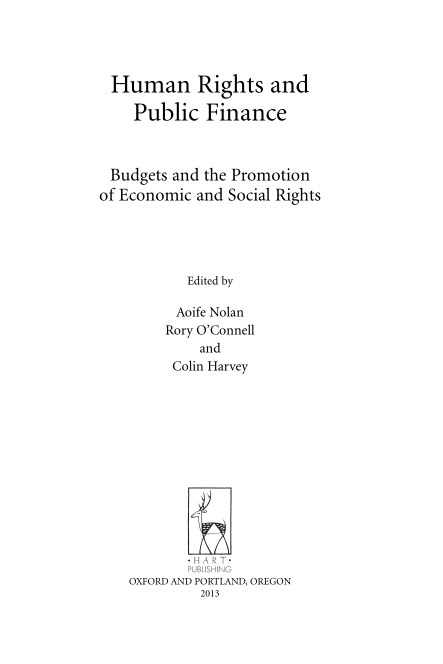Resourcing Rights: Combating Tax Injustice from a Human Rights Perspective
Chapter by Ignacio Saiz from
Human Rights and Public Finance
Budgets and the Promotion of Economic and Social Rights
Edited by
Aoife Nolan, Rory O'Connell and Colin Harvey
Taxation is a rarely explored topic on the human rights agenda, yet it is one of the most important policy instruments governments can deploy to generate the resources needed to realise the full range of human rights. This chapter by Ignacio Saiz from Human Rights and Public Finance: Budgets and the Promotion of Economic and Social Rights (2013, Hart Publishing) looks at tax as a human rights issue, and explores how inequitable tax policies can be assessed and challenged from the perspective of human rights principles and standards.
The chapter highlights three central functions of taxation from a human rights perspective: its role in generating the "maximum available resources" to finance human rights-related expenditure; its potential role in redistributing resources in order to mitigate and redress social inequalities; and its role in cementing the bonds of accountability between state and citizen.
The author argues that it is particularly critical to bring taxation under the lens of human rights scrutiny in the wake of the 2008 global financial and economic crises. Ignacio Saiz also highlights two recent examples of the application of human rights analysis to domestic tax policy, drawing on CESR's experience in tracing the link between inadequate revenue generation and poor human development outcomes in Guatemala, and assessing the human rights impact of fiscal austerity measures adopted in Europe in the aftermath of recession.
